 Let’s not kid ourselves. Babies are a big industry. From the moment you fall pregnant the shelves are filled with all the “things” you need for your little one. So today I’m not going to talk about what you need for your baby. I’m going to talk about what you need to make that baby grow properly inside of you. The nutrition that it needs to prosper to the full extent. Don’t throw your precious money away on any old supplement. Get what you need from your prenatal vitamins.
Let’s not kid ourselves. Babies are a big industry. From the moment you fall pregnant the shelves are filled with all the “things” you need for your little one. So today I’m not going to talk about what you need for your baby. I’m going to talk about what you need to make that baby grow properly inside of you. The nutrition that it needs to prosper to the full extent. Don’t throw your precious money away on any old supplement. Get what you need from your prenatal vitamins.
I’ve done extensive research on vitamins for pregnancy and food for fertility and you can read those posts on my blog at One Step at a Time. I listened to a lot of speakers at Fertility Conferences describe why they were needed and how they prepare your body for a baby. So without further ado here’s the most important things you need inside your tablets. Along the way I’ll also be mentioning a new offering on the market, Chela Preg, and let’s see how it shapes up.
- Folic Acid.
This is probably the most important one. Get it in your system even if you are trying to conceive. According to Toni Weschler, the author of Taking Charge of Your Fertility, taking this vitamin in the first 6 weeks can dramatically decrease your baby’s risk of neural tube defect, brain and spinal chord defects and spina bifida. This really isn’t a joke and I actually know someone that it happened to who did not take prenatal vitamins. Folic acid can also help prevent cleft palate (Sheila Kitzinger, The new Pregnancy and Childbirth)
If you look at the quantities in Chela Preg, you’ll see there is more of this in the first Trimester, when it is really needed. (It is called Quatrefolic Acid (a natural 5-MTHF folate form of folic acid). So it’s 500ug, 250ug and 250 ug respectively. What to Expect When You’re Expecting recommends between 400-600.
2.Fish Oil. So this is your Omega 3 fatty acids. A lot of people take this just as a nutritious
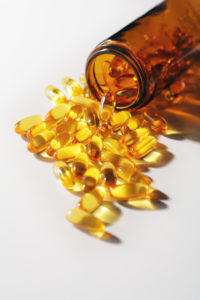
supplement. Dr Marilyn Glenville, who I used to listen to at those fertility conferences, and who also wrote a book “Getting Pregnant Faster”, says that they boost your baby’s brain, eye and central nervous system development. They also help with preventing low birth rate and decrease the likelihood of premature birth or miscarriage because it prevents blood clotting inappropriately. She says to avoid cod liver oil and rather take flax seed or linseed oils.
Chela Preg has 250, 200 and 300mg respectively for each trimester. You’ll see on the box it consists of a certain amount of DHA and EPA. (decosahexaenoic acid and essentail fatty acids) So it is good that you are getting both of them, which is what your baby needs. DHA is a baby brain booster according to What to Expect.
3. Vitamin C. So Dr Glenville seems to think “You can never have enough Vitamin C”, well, I’m
sure there is a limit. But this is such a good immune booster (I still take it) and helps prevent you from getting sick. It also helps absorption of the other vitamins.
You’ll find Vitamin C in Chela Preg 55mg, 42.5mg and 42.5mg fpr each set of Chela Preg. (What to Expect says have 50-80mg)
4.  Calcium. We know as women we need this for our bones and teeth. Something definitely to supplement as we get older too! For baby, they need it for their bones and teeth as well as nervous system and blood.
Calcium. We know as women we need this for our bones and teeth. Something definitely to supplement as we get older too! For baby, they need it for their bones and teeth as well as nervous system and blood.
Chela Preg has 250, 500 and 400mg for each trimester. Interesting that What to Expect When You’re Expecting recommends 250g and says if you want to take more it must be separate from the iron and you’ll see Chela Preg separates the two tablets so that you take your calcium in the morning and iron in the evening. So that works well.
5. Iron. I had to have a bit extra in my pregnancy (prescribed by my gynae) and it sure helps with fatigue. It’s probably not an essential but something you can get tested for. After I had the baby he made me stop because my levels were too high! So it’s important to test.
You’ll see Chela Preg has Ferrochel Iron 10mg, 10mg and 12mg. This version is a gentle non-constipating chelated iron, for the formation of additional red blood cells to carry more oxygen to meet baby’s growing metabolic needs.
6. Zinc. Dr Glenville says that zinc is vital for fertility for hormone balance and sperm count plus prevention of miscarriage. It ‘s also so important for growth and cell division in a foetus. You’ll notice that you’re zinc deficient, according to her, if you have white spots on your nails, irregular periods and a poor sense of taste and smell.
Kitzinger also references zinc for the contraction of muscles and it may prevent a long labour.
Chela Preg has 3.4mg, 4.3mg and 3mg for each trimester. What to Expect suggests up to 15mg.
7. Copper – nothing here from Dr Glenville, but it’s on What to Expect‘s list at 2mg. Chela Preg has 1mg, 1mg and 0.5mg.
8 Selenium.
Selenium has a protective effect on cell division. So it prevents chromosome breakage which is known to cause birth defects and miscarriages according to Dr Glenville. Not on What To Expect‘s list but Chela Preg has it at 60, 30 and 30 ug.
9. Magnesium. Ok I can’t find this on Dr Glenville but What to Expect does mention it elsewhere for fighting constipation. 150, 150 and 75 mg for each trimester for Chela Preg. Kitzinger says it also helps prevent pre-eclmpsia; useful if you are prone to blood pressure problems like me.
7. Vitamin A. What to Expect is very vocal that your Vitamin A should not be more than 4000 IU.  You’ll see Chela Preg has 2640, 1320 and 1320 for each trimester. The key difference is not to take the high doses of animal form of Vitamin A found in liver, rather take the safer vegetable forms (beta carotene) found in carrots, tomatoes, cabbage and broccoli, which most supplement manufacturers use.
You’ll see Chela Preg has 2640, 1320 and 1320 for each trimester. The key difference is not to take the high doses of animal form of Vitamin A found in liver, rather take the safer vegetable forms (beta carotene) found in carrots, tomatoes, cabbage and broccoli, which most supplement manufacturers use.
Vitamin A is an essential antioxidant which protects mucus membranes from infection and safeguards from mutations aays Dr Glenville.
8. Vitamin B.
Vitamin B6 aids in developing and maintaining your immune system and in preventing cancer, infection and damage to chromosomes. It helps with fertility in regulating your periods and women use it for PMS relief too. It helps with morning sickness too and you’ll see there is extra in Chela Preg in the first trimester.( 30mg) then it goes down to 0.95mg for the other two.
B12 is probably the most well known. It isn’t easily absorbed (according to Dr Glenville) so you need your meat as well. It is vital for cellular reproduction and it has been shown to reduce miscarriage too. Again there’s more in Trimester 1 for Chela Preg (26ug) (What to Expect says 2.6mg so that looks right) and then less for the other two (13 ug)
Chela Preg also has a whole whack of other B vitamins as well (B1 B2 B3 B5) so you’re pretty well covered when it comes to this vitamin.
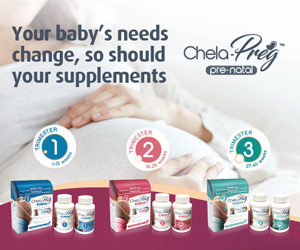 There are more vitamins and minerals in Chela Preg but I think I’ve covered the basics. You’ll also find Vitamin E (in Trimesters 2 and 3) , Vitamin K, Biotin, Choline, Chromium, Iodine, Manganese and Molybdenum.
There are more vitamins and minerals in Chela Preg but I think I’ve covered the basics. You’ll also find Vitamin E (in Trimesters 2 and 3) , Vitamin K, Biotin, Choline, Chromium, Iodine, Manganese and Molybdenum.
In conclusion I would say that the most important element of your prenatal vitamins is folic acid (not negotiable!). The other important factor is to work with your gynecologist on how you are feeling and he or she will take blood tests if necessary to see where you are deficient / over doing things and prescribe the necessary supplements.
This post is sponsored by Chela Preg. Read the overview on why they’ve divided the vitamins into three trimesters here.
References:
What to Expect When You’re Expecting (2009) Heidi Murkoff, Simon & Schuster: London
Getting Pregnant Faster : Boost your fertility in just 3 months (2008) Dr Marilyn Glenville, Kyle Cathie Ltd:London
The new Pregnancy and Childbirth: Choices and Challenges (2008) Sheila Kitzinger , DK: London
Taking Charge of Your Fertility (2006) Toni Weschler,Harper Colins: New York
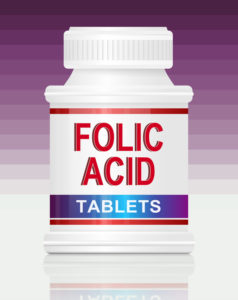

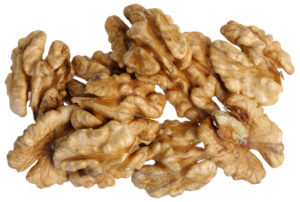
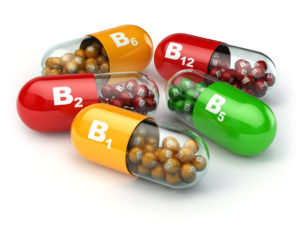



[…] Related post: What You Need Inside Your Prenatal Vitamins […]